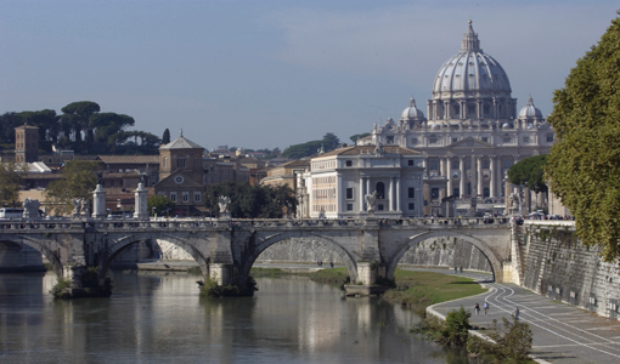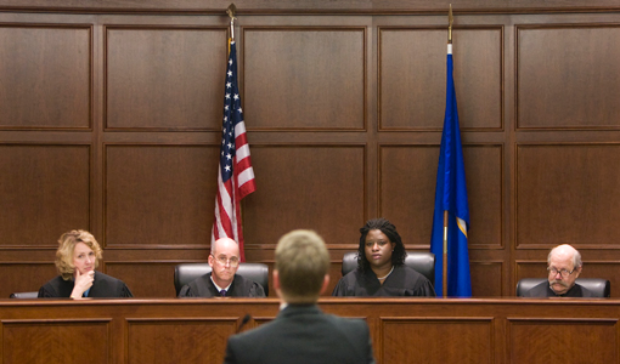The Angelicum is a “pontifical” university, and is dependent on the pope for its statutes and its recognition as a university. All pontifical universities are regulatedon the basis of the Vatican document, Sapientia christiana, which allows the Vatican some role in the direction of the university while respecting genuine academic freedom. This allows the Angelicum to address the critical issues that face the Church, and to engage in debate about these issues in a productive way.
The beginning of the Angelicum (more fully known as the Pontifical University of St. Thomas) can be traced back to the 16th century, when a Dominican bishop of Peru, Juan Solano, founded the College of St. Thomas in Rome. Although the college was open to non-Dominican students, it only was allowed to give them Church-recognized degrees beginning in 1727.
After the unification of Italy in 1870, the College of St. Thomas was forced to leave its base in Santa Maria Sopra Minerva, and went through a period in which it had no real home. At the turn of the century, however, the master of the Dominican Order, Blessed Hyacinth Cormier (who is now buried in the chapel at the Angelicum), managed to establish the college on a site near its present home. It was at this time that the college first became known as the Angelicum.
Many of the properties that had been taken from the Church at the time of Italian unification were bought back after the Lateran treaties were signed in 1929. One such property was a 400-year old monastery of Dominican nuns. At that time, the Dominican nuns agreed to build a new monastery and to give their monastery to the Angelicum. The Angelicum has been blessed by the nuns with four centuries of prayer, and they continue to pray for us from their new monastery.
At the Angelicum, faculty members from the Catholic Studies program at St. Thomas work in partnership with the Faculty of Social Sciences (FASS). Started in 1952, FASS began as an initiative by Pius XII, who asked the Angelicum to offer courses for its students to help them better understand the ways in which the Gospel can be mediated through culture and society. With a focus on courses in ethics and social teaching, the faculty aim to base subjects within a Christian moral framework, with particular emphasis on themes prominent in Catholic social teaching.
Another important element of the program is the international character of the Angelicum. At last count, the Angelicum counted 96 nationalities among its student body. FASS is particularly diverse, with an especially high representation from developing and former communist countries.
As a result, students from St. Thomas have an opportunity to meet young people from all over the world and to develop a sense of solidarity with them. Furthermore, this all takes place in Rome, a center for the cultural life of the Church and for Western civilization for more than 2,000 years.
In the future, there is great opportunity for collaboration between the University of St. Thomas and the Angelicum. With the Rome program at its core, there is potential for further exchange of students and professors, joint research projects and mutual help in fund raising. For our part at FASS, we look forward to many more years of collaboration with St. Thomas and the Catholic Studies program.







